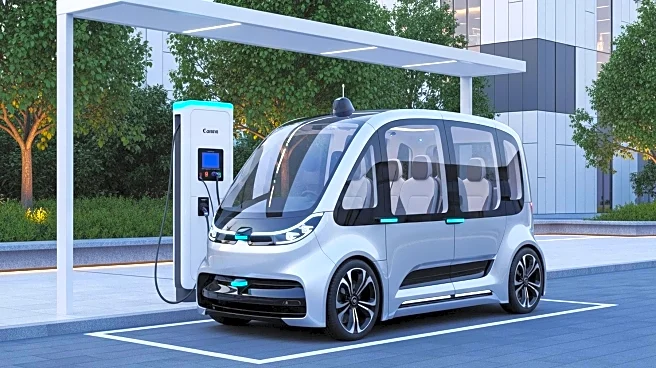What is the story about?
What's Happening?
Singapore has launched its first self-driving shuttles in Punggol, marking a significant step in autonomous vehicle technology. The shuttles, which will operate on three routes, aim to improve connectivity in areas less accessible by public transport. The initial phase involves mapping routes and familiarizing vehicles with local road conditions. Passenger trials are set for early 2026, with commercial services expected later that year. The initiative is part of Singapore's broader strategy to enhance public transport efficiency and reduce reliance on human drivers.
Why It's Important?
The deployment of self-driving shuttles represents a major advancement in transportation technology, with potential benefits for urban mobility and environmental sustainability. By integrating autonomous vehicles into the public transport network, Singapore aims to offer safer, more efficient, and convenient travel options. This initiative could serve as a model for other cities looking to adopt similar technologies, potentially leading to reduced traffic congestion and lower emissions. The project also highlights the growing importance of technology in shaping future transportation systems.
What's Next?
As the shuttles undergo testing, feedback from users will be crucial in refining the service. Authorities will monitor the rollout closely, with plans to expand autonomous shuttle services to other areas. Collaboration with companies like Grab and ComfortDelGro will continue to ensure the service meets public needs. The success of this initiative could accelerate the adoption of autonomous vehicles globally, prompting further investment in related technologies and infrastructure.
















